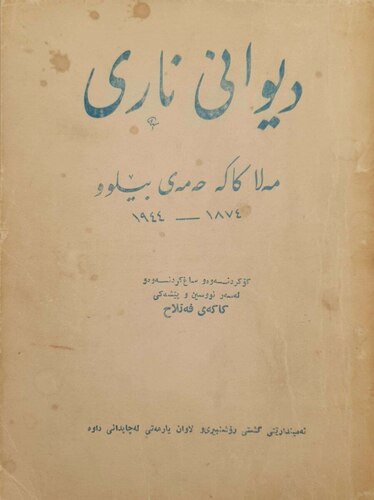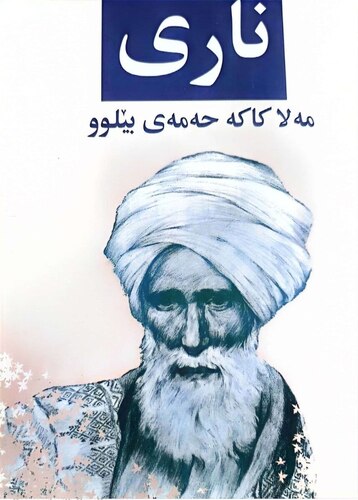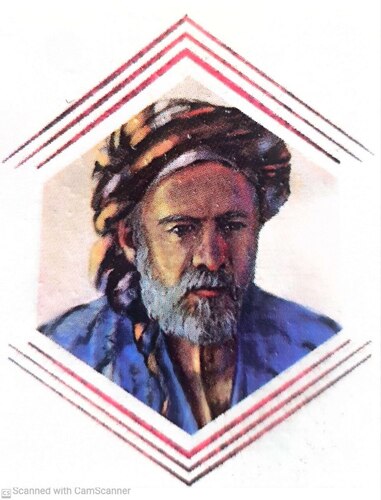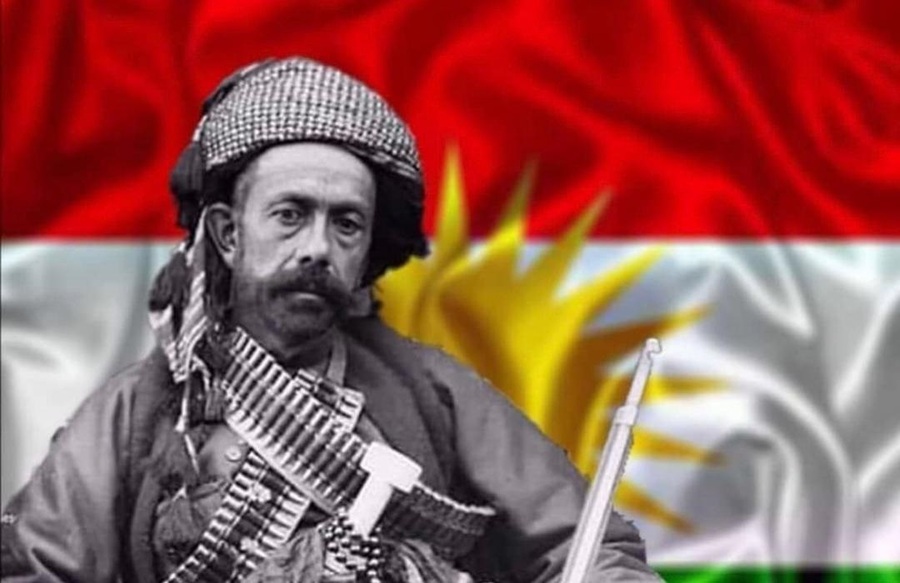Anwar Karim Saeed
When we talk about Kurdish classical literature, there are many shining stars hidden underneath the cloud of forgetfulness that has decorated the Kurdish literature sky. Ahmad Khani, Faqe Tayran, Jigar Khwen, Nali, Salim, Kurdi, Mahwi, Nari, Adab, Hariq, Mawlawi, Besarani, Khanay Qubadi and … hundreds of other prominent poets are a part of the Kurdish nation's pride. As we know, in the past the only place for people to receive an education was Hujra (a part of the mosques for young men to study religion and literature) in Kurdistan and these shining stars and tens of other knowledgeable men have appeared in the mosques' Hujras.
One of the Kurdish literature stars is "Nari" which is the pseudonym of "Kaka Hama Belou" also known as "Kaka Hama Marivani". This poet was born in 1874 in "Kikn" village in Marivan and died in 1944 in "Belou" village of Khawmiraw in Marivan. "Nari" was a patriotic poet with a delicate sensitivity who presented a bunch of poems with his great power of imagination to Kurdish literature. This poet had a lot of poetic works and the level of his poetry indicates that he had more poems than what has remained. Now his only poetic Divan is available in which a small number of his poems are included.

There are two reasons for the small number of poems that have remained of this great poet. First, Belou village was burned down and "Nari's" house, library and all his property burned down in the fire within the quarrels the various clans of Marivan used to have. Second, the publication centres on carelessness especially in the Southern part of Kurdistan; forty years after Nari died i.e., in 1984 Nari's poems were collected in a Divan by "Kakay Fallah". Most of Nari's poems have been dedicated to "Sheikh Mahmoud" and his sons. In this 150-page Divan published by "Kakay Fallah", 19 poems are dedicated to Sheikh Mahmoud and his sons.
This fact reveals that "Nari" possessed a deep sense of patriotism and he considered Sheikh Mahmoud Malik's revolution very important. However, in all the meetings and seminars that have been held in honour of Nari in the East part of Kurdistan, the critics have only talked about one aspect of Nari's poems which is the mystical and religious aspect. Although Nari's poems' content shows that he was a Sufi with great belief in Sufism, at the same time he was concerned with patriotic feelings and love for Kurdish leaders such as "Malik Mahmoud". Nari was both a literary Sufi as well as a nationalist elite whose poems were published in magazines and newspapers at the time when Sheikh Mahmoud was leading Kurdistan.

"Sheikh Mahmoud Malik" who became Kurdistan's ruler in the South part in 1922 demanded legal human rights for the Kurdish nation and an autonomous Kurdistan was one of the respectful characters for Nari. "Steven Longrigg" talked about "Sheikh Mahmoud's" ruling Kurdistan in his book, Iraq in 1900 – 1950, like this: Sheikh Mahmoud's authority expanded to Halabja, Suleimani, and Ruwandz and for some time Koya and the region around it were under Sheikh's authority. Tens of Kurdish lords and clans accepted his authority and the Kurdish language became the official language of their government. They only ruled over the Kurdish people. Although the superpowers' interest was not in such a government that rules over a Kurdish land and "Malik Mahmoud's" authority could not last for long; however, during that time a cultural movement had begun and many poets, journalists and authors such as "Zewar", "Rafiq Hilmi" and "Nari" and … emerged. "Nari" and a number of literary figures, authors and scholars built up a strong relationship with "Sheikh Mahmoud" and his authority and revolution loving, respecting, and supporting this leader until the very last moments of his movement and national revolution.
The relationship and friendship between "Nari" and "Malik Mahmoud" were so intimate that they used to send letters written in poems to each other. Their friendship reached a level that Sheikh's sons like "Sheikh Raouf", "Sheikh Latif", "Sheikh Baba Ali" and "Sheikh Ahmad" were also friends with Nari. Nari's respect and love for Sheikh Mahmoud and his family began in 1910 after the catastrophe that had happened in Mosul in which Sheikh Mahmoud's father had been killed by the Ottomans and Sheikh Mahmoud had to move to Marivan. People of Marivan, the lords, Mullahs, Sheikhs and peasants respected him greatly and served him during the time he stayed in that city.

Another historical event reveals this strong bond between Nari and Sheikh Mahmoud Hafid for us even better. In 1927 when the British had defeated Sheikh Mahmoud's forces with their large army, cannons and military air force, Sheikh Mahmoud was forced to go to the East part of Kurdistan and settle in "Piran" village. His army fled away and he remained alone. The Iranian government was afraid of him so they planned against Sheikh Mahmoud in Marivan. After a while, the people were worried that Sheikh Mahmoud to be arrested by the Iranian government. The Mullahs and patriotic people of Marivan led by Nari attempted to gather a large number of forces to protect Sheikh Mahmoud in the surrounding mountains of "Piran". A part of them went to the mountains around "Dolabe" village and another part of them covered Sardosh mountains behind Piran village and until the threats were completely ended these forces remained on their posts protecting this Kurdish leader. Iranian army knew about this force thus, they gave up their plan for attacking Sheikh Mahmoud.
So, Nari and Sheikh Mahmoud's relationship consisted of three aspects: they were both interested in poetry and literature exchanging letters written in poems together. On the other hand, they had family relationships and Nari and Sheikh Mahmoud and his sons had close friendships. Most importantly, the national revolution of Sheikh Mahmoud made Nari more interested in his character and made him one of Sheikh Mahmoud's followers with a close relationship with him.









